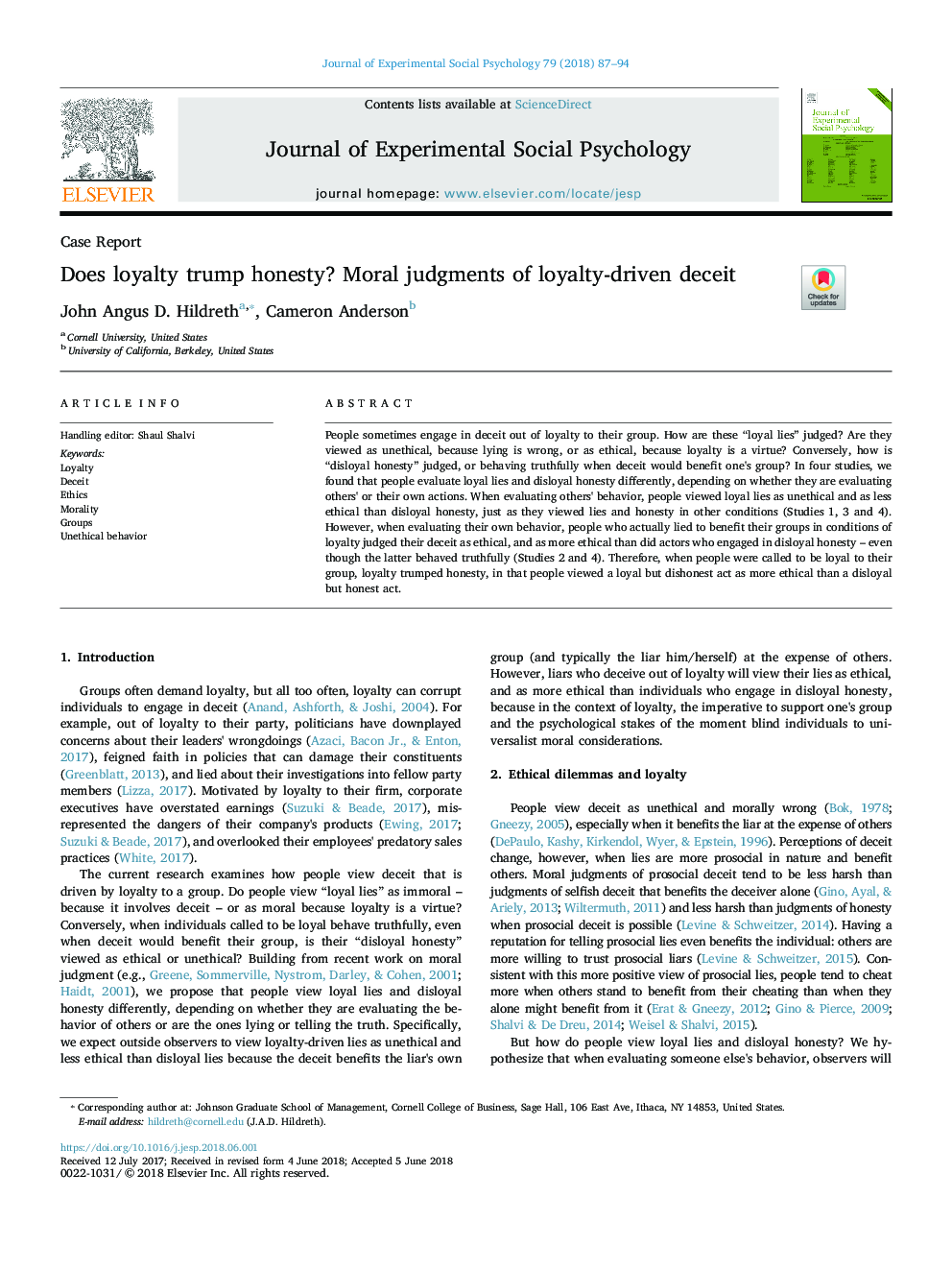| Article ID | Journal | Published Year | Pages | File Type |
|---|---|---|---|---|
| 7323996 | Journal of Experimental Social Psychology | 2018 | 8 Pages |
Abstract
People sometimes engage in deceit out of loyalty to their group. How are these “loyal lies” judged? Are they viewed as unethical, because lying is wrong, or as ethical, because loyalty is a virtue? Conversely, how is “disloyal honesty” judged, or behaving truthfully when deceit would benefit one's group? In four studies, we found that people evaluate loyal lies and disloyal honesty differently, depending on whether they are evaluating others' or their own actions. When evaluating others' behavior, people viewed loyal lies as unethical and as less ethical than disloyal honesty, just as they viewed lies and honesty in other conditions (Studies 1, 3 and 4). However, when evaluating their own behavior, people who actually lied to benefit their groups in conditions of loyalty judged their deceit as ethical, and as more ethical than did actors who engaged in disloyal honesty - even though the latter behaved truthfully (Studies 2 and 4). Therefore, when people were called to be loyal to their group, loyalty trumped honesty, in that people viewed a loyal but dishonest act as more ethical than a disloyal but honest act.
Related Topics
Life Sciences
Neuroscience
Behavioral Neuroscience
Authors
John Angus D. Hildreth, Cameron Anderson,
